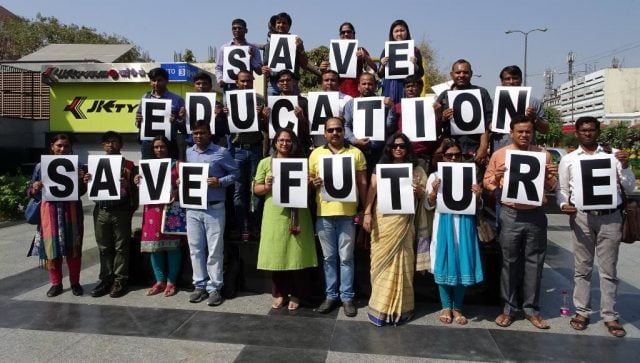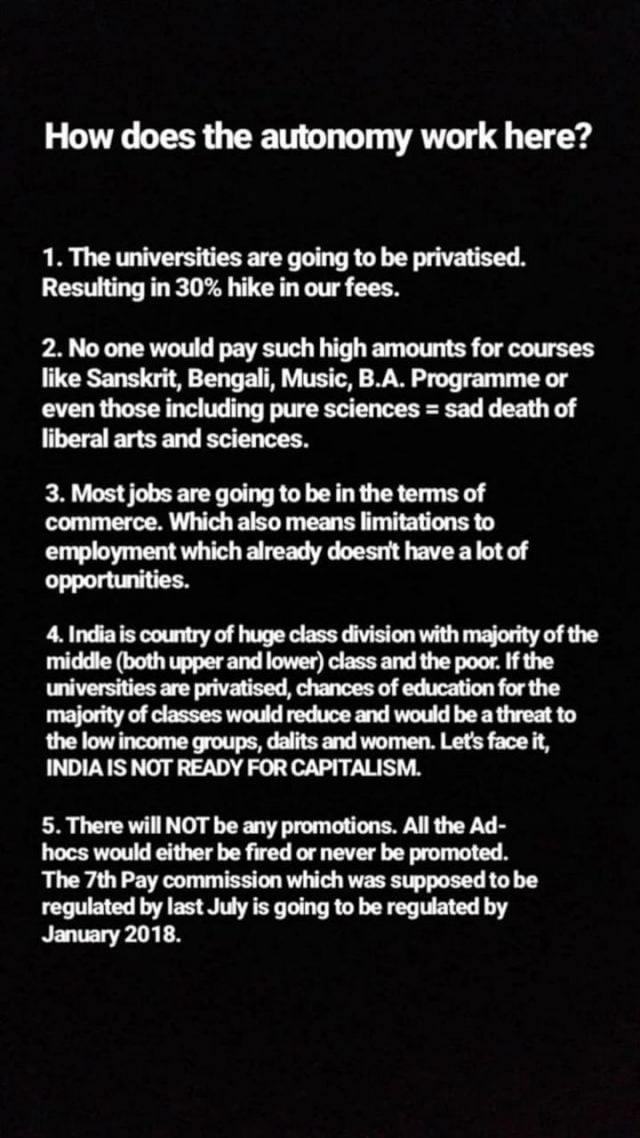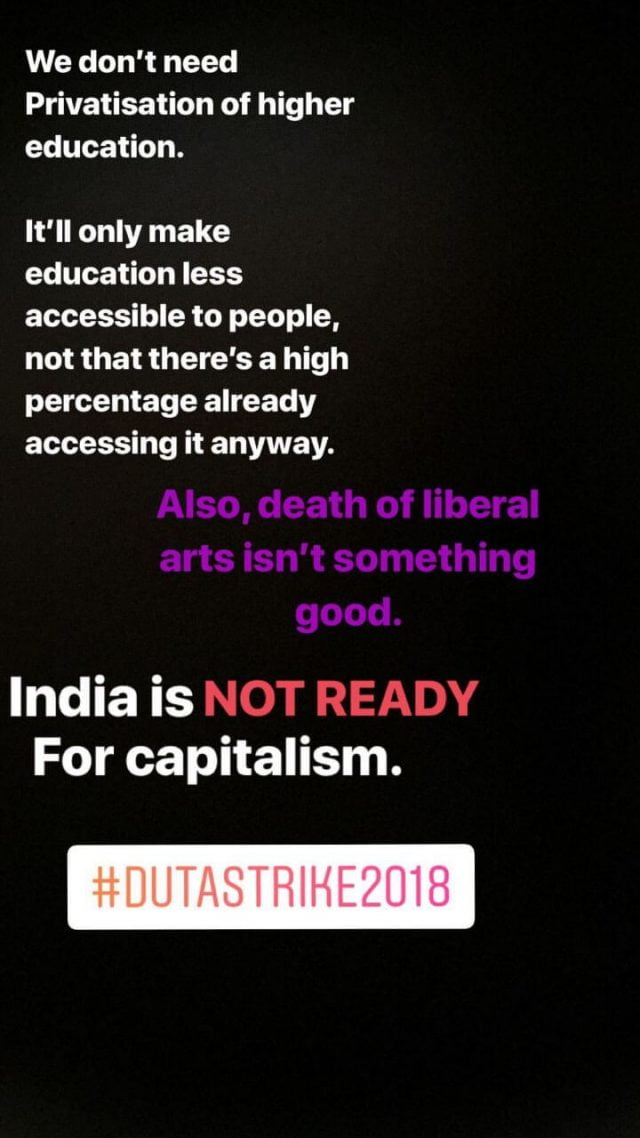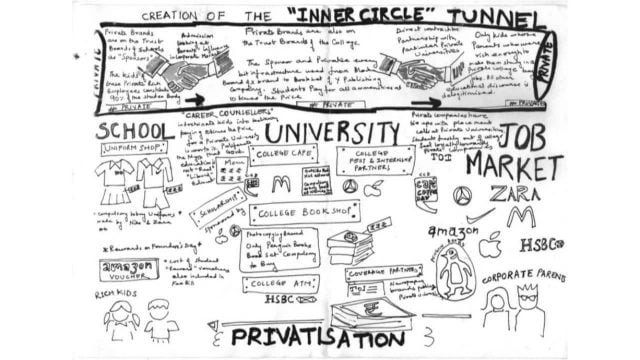On 19th March 2018, the Delhi University Teacher’s Association (DUTA) declared a mass 5-day strike across the university to protest against the recommendations brought about by the 7th Pay Commission and how according to them, it commercialises and privatises the education sector.
Seeing how there is a lot of confusion as to what exactly is the matter and why the teachers are protesting so heavily against the 7th Pay Commission, let us understand what this is in layman’s terms.
What Is The 7th Pay Commission?
The Pay Commission is a committee created by the Indian government and its purpose is to give recommendations related to change of salary structure of its employees. It essentially reviews and makes recommendations on the pay and work structure of all the various divisions that come under the Government of India such as civil and military.
The 7th Pay Commission takes in salary hike if any, funding, pension, organization, allowances and more in its recommendations.
As per one of the recommendations, the minimum wage of government employees was decided at Rs. 18,000 and the fitment factor was set at 2.57.
While there was initial news of the minimum wage being increased to Rs. 21,000 and the fitment factor to 3, today Modi government squashed all those hopes when Minister of State for Finance P. Radhakrishnan stated the government currently is not considering any hike beyond the recommendations set by the 7th Pay Commission.
Why Is DUTA Protesting?
The Delhi University Teacher’s Association (DUTA) decided to go on a 5-day strike from 19th March to 23rd March in order to:
1. Protest the 70:30 funding formula
One of the things that the DUTA is rallying against is the 70:30 funding formula that as stated by sources expects the central universities to raise at least 30% of the funding as per the 7th Pay Commission.
According to the President of DUTA, Raji Ray, this could “immediately affect not only the disbursement of salaries but will force universities to raise funds through student fees and introduction of self-financing courses.”
DU has always been known as a university known to provide affordable education that can be availed by students who come from less well-to-do families.
But as per the DUTA and few other universities, this could result in raising the fees that could thus make admission unaffordable for students.

Read More: TISS Bandh/Protest: Protests Have Reached The Stage Of Hunger Strike?
2. Loans for infrastructure development
The MHRD has also introduced the concept of Higher Education Financing Agency (HEFA) that basically replaces the standard grants being given by the government with loans if a college wants to make infrastructure changes or repairs.
As per sources, the HEFA module will be that any central institution of higher education that requires money to make infrastructure developments will have to loan it out from this agency. The institution will then be going by the typical loan rules to return the amount borrowed in a decided period of time.
Again this could lead to fees being raised as this is one of the few small ways that a college can raise its revenue especially if they have taken a loan that they need to pay back. Thus, making education even more expensive than it is now.
3. Autonomy of Colleges
The third point that they are fighting against is the recent move by UGC to grant autonomy to colleges and although DU is not in the list of above 60 universities given this status, they fear that soon DU colleges might start demanding it too.
According to this move, colleges will get both administrative and financial autonomy and according to news sites is being seen as a push to ‘self-financing’ where not only can the college increase the fees but also bring in courses that are geared more towards generating revenue for them to collect the necessary funds, thereby eventually killing non popular courses.
This is an intense time for the DU teachers and students are also being asked to join in the protest and lend their support by not attending classes. The students have also been rallying support for the protest by sending out such WhatsApp forwards and stories:




As per the latest updates, a major rally will be taken out from Mandi House to Parliament Street on 28th March 2018.
Image Credits: Google Images
Sources: Financial Express, The Indian Express, NDTV + more
Other Recommendations:
http://edtimes.in/2018/03/sexual-harassment-in-indian-school-and-college-campuses-increases-by-50-where-are-we-headed/
































